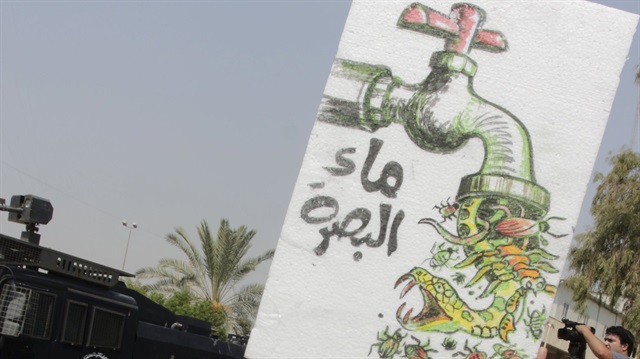
Head of parliamentary rights commission raises alarm over ‘environmental disaster’ in southern province
At least 60,000 people have suffered temporary poisoning due to polluted water in Iraq’s southern Basra province, Iraq’s High Commission for Human Rights (IHCHR), a parliamentary body, said Wednesday.
“We’re watching with concern as the adverse effects of pollution continue to mount in Basra, where we have documented 60,000 cases of temporary poisoning [due to tainted drinking water],” Mahdi al-Tamimi, head of IHCHR’s Basra office, said.
“This is a serious environmental disaster affecting the lives of all Basra residents,” he added.
Last month, Iraq’s Water Resources Ministry reported that the percentage of dissolved salts had reached 7,500 tds (total dissolved solids) in the Shatt al-Arab waterway, Basra’s main source of drinking water.
The World Health Organization, meanwhile, has set 1,200 tds as the maximum level for safe drinking water.
In August, Prime Minister Haider al-Abadi ordered local authorities in Basra to repair dilapidated water desalination plants and antiquated water networks.
He also instructed Iraq’s defense and transportation ministries to allocate vehicles to assist in delivering potable water to citizens.
Since July 9, Iraq’s Shia-majority southern and central provinces -- especially Basra -- have been rocked by a wave of popular protests which at one point spread to capital Baghdad.
Demonstrators demand improved public utilities, including water and electricity; more job opportunities; and an end to alleged government corruption.
Meanwhile, negotiations over the outlines of Iraq’s next government remain the subject of controversy as leading political parties and groups struggle to forge a parliamentary majority following hotly-disputed elections conducted in May.


